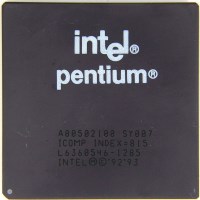 Google knows me better than I know myself
Google knows me better than I know myself
Much of the work I do has to do with website management and hosting. And so recently, I found myself editing a massive FAQ — roughly half the length of a novel. It was not exactly fun — at least at first; once it started to take shape, it was fun. But I found myself trying to explain to my 83 year old father what I was doing. He doesn’t even know what an FAQ is, so I was trying to find a way to explain the problem of trying to create a structure out of a collection of disparate information. And I said, “There might be information about, I don’t know, iPage.”
That was the example that came to mind: iPage. If I just started brainstorming, I could probably come up with a hundred web hosting companies. But it was iPage that popped into my mind yesterday evening. Then, this morning, I did what I normally do: I got a cup of tea and drank it while I did my political reading. And the ad on the left popped up. And that disturbed me.
Let me be clear what I am not saying. I’m not saying, “Geez, it sure is amazing that Google knows what I’ve been doing!” The fact that advertising follows me from site to site isn’t surprising. It is one of the first things people learn when they get on the internet. And I’m used to this. Not long ago, I was writing an article about Matlab, and so for a week after it, I was getting Matlab ads.
This is an interesting thing about being a freelance writer: ads tend to be very badly targeted toward me because what I’m searching for is only interesting to me for an hour or two. To give you some idea, my direct boss asked me to expand a document about how freelancers should submit their invoices. I said, “That’s a great idea; I didn’t realize we had a document like that!” And she said, “You wrote it.” Indeed I had: just two months ago. But I don’t remember things. You do them and then you move on to something else.
Anyway, the point is that I’m not surprised that some web hosting company I’ve been writing about starts getting advertised to me. But I wasn’t writing or researching anything about iPage. But clearly, I spend a lot of time on websites that talk about web hosting. And so I doubtless was on a page that was talking about iPage. And that’s why it was the hosting company that came into my mind and the one that Google thought I would like to see this morning.
I had a similar experience several years ago. I was at the grocery store staring at several rows of Ben & Jerry’s ice cream. Now, I like Ben & Jerry’s, but it isn’t my favorite ice cream. And as I looked at the selection, I remembered that earlier that day I had seen a banner ad for Ben & Jerry’s. It’s upsetting to be reminded of just how easily we are manipulated. But we are just very complicated machines. We are largely predictable.
I know that Google doesn’t know that I mentioned iPage to my father last night. But I do think that Google knew that iPage was on my mind, even though I wasn’t conscious of it. It’s creepy. And it will only get more so. Remember Transient Global Amnesia?
Consciousness is a joke.

 Today’s song is “Jurassic Park.” Elizabeth commented, “Since I think you mentioned you don’t like MacArthur Park, this might cheer you up. Plus claymation!” Well, she was half right. I am a big fan of claymation, and in fact, every kind of animation. One of the great things about never having kids is that you aren’t required to ever act like an adult. (Note to all you parents out there: I know you’re all pretenders!)
Today’s song is “Jurassic Park.” Elizabeth commented, “Since I think you mentioned you don’t like MacArthur Park, this might cheer you up. Plus claymation!” Well, she was half right. I am a big fan of claymation, and in fact, every kind of animation. One of the great things about never having kids is that you aren’t required to ever act like an adult. (Note to all you parents out there: I know you’re all pretenders!) On this day in 1993, Intel released the first Pentium CPU. It ran at 60 MHz — 60 million cycles per second. Think about that: the little clock inside that chip was going from 0 to 5 volts and back to 0 volts: 60 million times every second! That still boggles my mind. Meanwhile, the computer I’m writing this on has a clock speed of 3.1 GHz — 3,100 million cycles per second — fifty times faster. I think the more you know about computers, the more amazing they are. To most people they are just a given. It shocks me that this all works.
On this day in 1993, Intel released the first Pentium CPU. It ran at 60 MHz — 60 million cycles per second. Think about that: the little clock inside that chip was going from 0 to 5 volts and back to 0 volts: 60 million times every second! That still boggles my mind. Meanwhile, the computer I’m writing this on has a clock speed of 3.1 GHz — 3,100 million cycles per second — fifty times faster. I think the more you know about computers, the more amazing they are. To most people they are just a given. It shocks me that this all works.